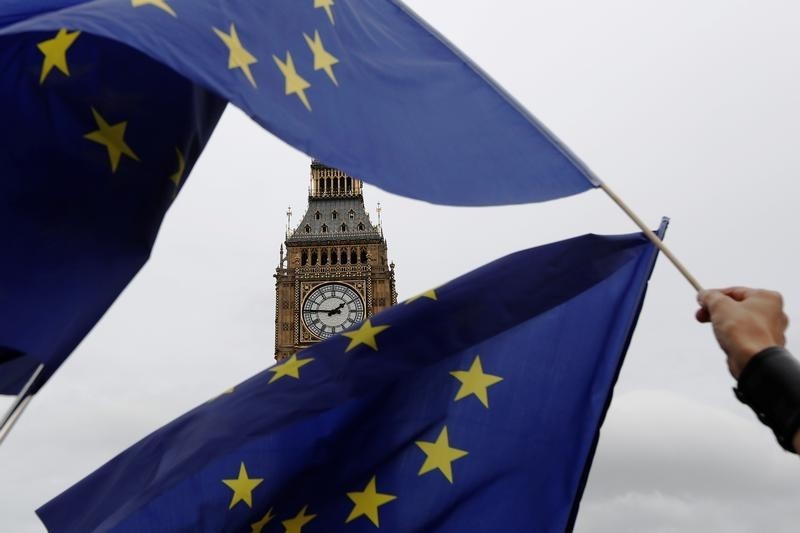By Amanda Ferguson
BELFAST (Reuters) - It is not "illegitimate" for Britain's prime minister to begin the process of leaving the European Union without parliamentary approval, a lawyer representing the government told a Northern Ireland court hearing on Wednesday.
A cross-party group of politicians, including members of the British province's two largest Irish nationalist parties, has brought a High Court challenge of plans to leave the EU, arguing that a vote in the Northern Ireland regional assembly should also be required.
Overall, 52 percent of voters in the United Kingdom voted in favour of leaving the EU in June's referendum, but a majority - 56 percent - of those voting in Northern Ireland supported remaining in the bloc.
Lawyers for the British government, which plans to start the two-year countdown to exiting the EU by March next year, have said that it is the prerogative of the prime minister to do so and the process does not require a vote in parliament.
"Giving effect to the referendum decision... and vote is classically within the area of prerogative power," lawyer Tony McGleenan, representing Britain's Secretary of State for Northern Ireland, told the Belfast court.
"It is not illegitimate, unorthodox or undemocratic," he said, adding that the United Kingdom joined the EU in 1973 by prerogative power and can withdraw in the same way.
The politicians pursuing the High Court case argue that the British government is legally obliged to maintain the statutory recognition of the 1998 Good Friday Agreement between Britain and Ireland, which contains references to the EU.
The agreement ended three decades of tit-for-tat killings between Catholic Irish nationalists, who want the province to unite with Ireland, and Protestant unionists, who want to remain part of the United Kingdom. The conflict left 3,600 dead.
Another applicant in the court challenge, Northern Ireland's Human Rights Consortium, said on Wednesday that it was deeply concerned that protections people in Northern Ireland enjoy by virtue of the UK's membership of the EU will be lost.
Small groups of anti-Brexit protesters also gathered outside the court ahead of the second day of proceedings, holding placards saying "Respect the 56%".
Similar legal challenges have been launched in England and London's High Court is due to hear them later this month. It is expected their outcome will be appealed to the Supreme Court, the United Kingdom's highest judicial body, to deliver the final verdict on the constitutional question in December.
